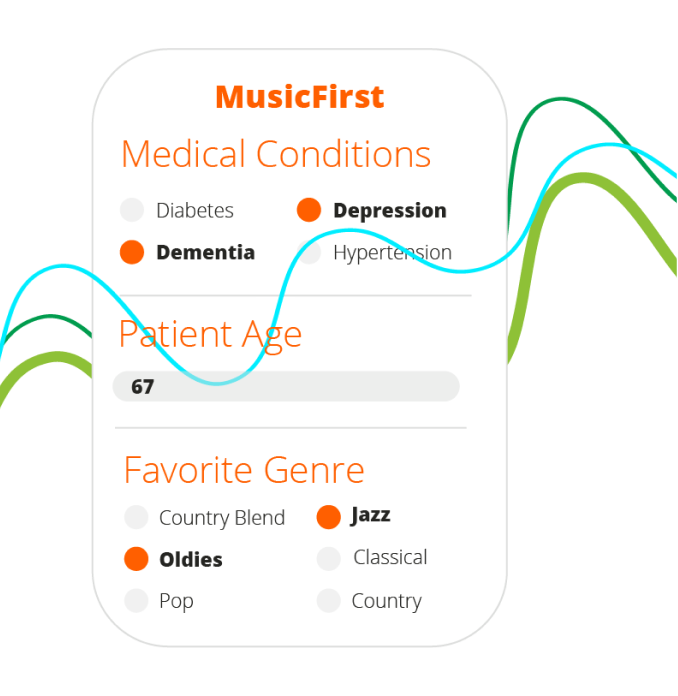The Role of Music in Healthcare:
How Nurses Can Improve Patient Care

For nurses, providing high-quality patient care goes beyond administering medication and monitoring vitals. The emotional and psychological well-being of patients plays a crucial role in the healing process. One often-overlooked yet highly effective tool for enhancing patient comfort is therapeutic music.
Music has been widely recognized for its ability to reduce stress, alleviate pain, and create meaningful moments of connection between healthcare providers and their patients. In fast-paced healthcare environments, nurses can integrate music to foster a sense of calm, improve patient experiences, and even support clinical outcomes.
How Music Impacts Patient Well-Being
Research has shown that therapeutic music can have a profound effect on both physical and emotional health. Studies suggest that listening to personalized, calming music can:
- Lower stress and anxiety by reducing cortisol levels
- Enhance relaxation and sleep quality
- Alleviate pain by triggering the brain’s natural pain-relief mechanisms
- Improve patient cooperation during procedures or recovery
- Support memory and cognitive function for individuals with dementia or brain injuries
For nurses, integrating music into patient care routines is a simple yet powerful way to humanize the healthcare experience and provide holistic support.
Real-World Impact: Mark Heyward Johnson’s Experience
One inspiring example of music’s impact in healthcare comes from Mark Heyward Johnson, a nurse with nearly 27 years of experience. Working in high-acuity hospital settings, Mark found that many patients felt overwhelmed, isolated, or anxious due to the clinical environment. Establishing personal connections with them was challenging.
By integrating Coro Health’s MusicFirst into his care routine, Mark witnessed firsthand how personalized music selections helped transform patient experiences. He recalls playing Leonard Cohen’s “Bird on a Wire” for a patient transitioning to end-of-life care. The familiar melody not only provided peace to the patient but also created a deeply moving, shared moment with the family. This experience reinforced his belief that music isn’t just background noise—it’s a bridge to connection, healing, and dignity.
“Playing a familiar song or a meaningful tune can immediately shift a patient’s mood and help them relax,” Mark shared. By using music as a therapeutic tool, he was able to create an environment of comfort and trust, even in the most stressful situations.
Implementing Music in Nursing Practice
For nurses interested in incorporating therapeutic music into patient care, here are a few simple strategies:
- Assess Patient Preferences
Ask about their favorite music genres, artists, or songs. - Use Pre-Curated Programs
Platforms like Coro Health’s MusicFirst offer clinically designed programs tailored to different needs—relaxation, energy, sleep, and more. - Create a Healing Environment
Use soothing background music in patient rooms to promote relaxation and ease anxiety. - Engage with Music Together
Encourage patients to hum, sing along, or simply listen to songs that bring them comfort.
The Future of Music in Healthcare
As more healthcare providers recognize the benefits of therapeutic music, its integration into nursing practices continues to grow. Personalized music experiences, such as those offered by Coro Health, provide a clinically proven, easily accessible way to improve emotional well-being and overall patient satisfaction.
For nurses looking to enhance their care approach, music is a simple yet transformative tool—one that bridges the gap between clinical treatment and true, compassionate healing.
Music has been widely recognized for its ability to reduce stress, alleviate pain, and create meaningful moments of connection between healthcare providers and their patients. In fast-paced healthcare environments, nurses can integrate music to foster a sense of calm, improve patient experiences, and even support clinical outcomes.
